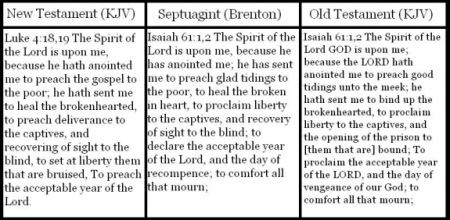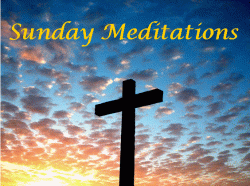 Part 10 in a series of Sunday posts celebrating the glorious Truth we believe as Christians. The readings are quoted from the Elder Affirmation of Faith, of my church, Bethlehem Baptist (Pastor John Piper). I’m doing this because every few weeks our congregational reading is an excerpt from this document, and every time we all read aloud the truths we confess, my soul rejoices. I pray these posts will aid you in worshiping our Lord on His day.
Part 10 in a series of Sunday posts celebrating the glorious Truth we believe as Christians. The readings are quoted from the Elder Affirmation of Faith, of my church, Bethlehem Baptist (Pastor John Piper). I’m doing this because every few weeks our congregational reading is an excerpt from this document, and every time we all read aloud the truths we confess, my soul rejoices. I pray these posts will aid you in worshiping our Lord on His day.
God’s Work in Faith and Sanctification
We believe that justification and sanctification are both brought about by God through faith, but not in the same way. Justification is an act of God’s imputing and reckoning sanctification is an act of God’s imparting and transforming. Thus the function of faith in regard to each is different. In regard to justification, faith is not the channel through which power or transformation flows to the soul of the believer, but rather faith is the occasion of God’s forgiving, acquitting, and reckoning as righteous. But in regard to sanctification, faith is indeed the channel through which divine power and transformation flow to the soul; and the sanctifying work of God through faith does indeed touch the soul and change it into the likeness of Christ.
We believe that the reason justifying faith necessarily sanctifies in this way is fourfold:
First, justifying faith is a persevering, that is, continuing, kind of faith. Even though we are justified at the first instant of saving faith, yet this faith justifies only because it is the kind of faith that will surely persevere. The extension of this faith into the future is, as it were, contained in the first seed of faith, as the oak in the acorn. Thus the moral effects of persevering faith may be rightly described as the effects of justifying faith.
Second, we believe that justifying faith trusts in Christ not only for the gift of imputed righteousness and the forgiveness of sins, but also for the fulfillment of all His promises to us based on that reconciliation. Justifying faith magnifies the finished work of Christ’s atonement, by resting securely in all the promises of God obtained and guaranteed by that all-sufficient work.
Third, we believe that justifying faith embraces Christ in all His roles: Creator, Sustainer, Savior, Teacher, Guide, Comforter, Helper, Friend, Advocate, Protector, and Lord. Justifying faith does not divide Christ, accepting part of Him and rejecting the rest. All of Christ is embraced by justifying faith, even before we are fully aware of, or fully understand, all that He will be for us. As more of Christ is truly revealed to us in His Word, genuine faith recognizes Christ and embraces Him more fully.
Fourth, we believe that this embracing of all of Christ is not a mere intellectual assent, or a mere decision of the will, but is also a heartfelt, Spirit-given (yet imperfect) satisfaction in all that God is for us in Jesus. Therefore, the change of mind and heart that turns from the moral ugliness and danger of sin, and is sometimes called “repentance,” is included in the very nature of saving faith.
We believe that this persevering, future-oriented, Christ-embracing, heart-satisfying faith is life-transforming, and therefore renders intelligible the teaching of the Scripture that final salvation in the age to come depends on the transformation of life, and yet does not contradict justification by faith alone. The faith which alone justifies, cannot remain alone, but works through love.
We believe that this simple, powerful reality of justifying faith is God’s gift which He gives unconditionally in accord with God’s electing love, so that no one can boast in himself, but only give all glory to God for every part of salvation. We believe that the Holy Spirit is the decisive agent in this life-transformation, but that He is supplied to us and works holiness in us though our daily faith in the Son of God whose trustworthiness He loves to glorify.
We believe that the sanctification, which comes by the Spirit through faith, is imperfect and incomplete in this life. Although slavery to sin is broken, and sinful desires are progressively weakened by the power of a superior satisfaction in the glory of Christ, yet there remain remnants of corruption in every heart that give rise to irreconcilable
war, and call for vigilance in the lifelong fight of faith.
We believe that all who are justified will win this fight. They will persevere in faith and never surrender to the enemy of their souls. This perseverance is the promise of the New Covenant, obtained by the blood of Christ, and worked in us by God Himself, yet not so as to diminish, but only to empower and encourage, our vigilance; so that we may say in the end, I have fought the good fight, but it was not I, but the grace of God which was with me.
*Taken from the Bethlehem Baptist Church Elder Affirmation of Faith, paragraphs 10.1 – 10.6. You are free to download the entire affirmation [pdf] complete with Scriptural proofs for the above statements.
Like this:
Like Loading...

 Melchizedek is a mysterious Old Testament figure. He appears on the stage out of nowhere, it seems. Then he jumps right back into obscurity.
Melchizedek is a mysterious Old Testament figure. He appears on the stage out of nowhere, it seems. Then he jumps right back into obscurity.
 Part 10 in a
Part 10 in a